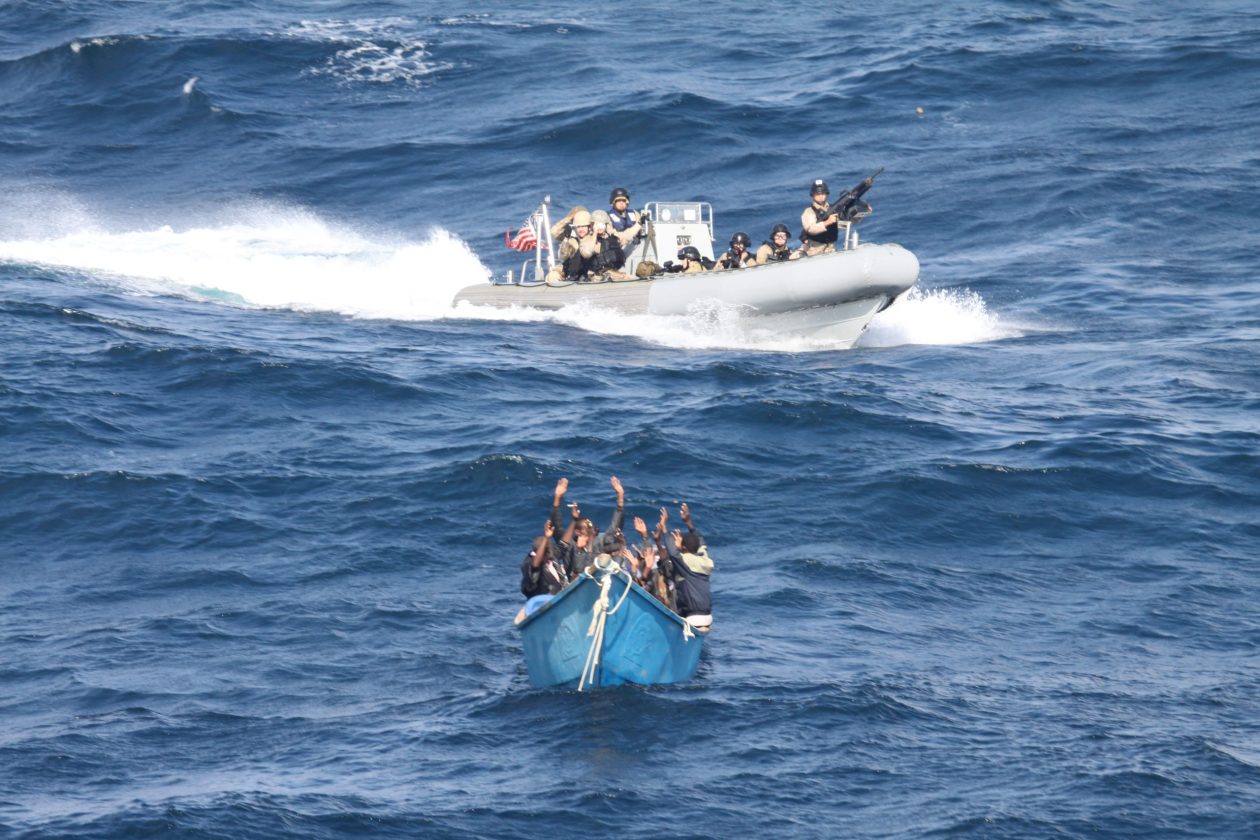Somali pirates are back in action, with a recent hijacking sparking fears of a resurgence despite years of decline. This incident and rising activity in the Arabian Sea and northern Indian Ocean highlight the need to address underlying challenges beyond just maritime security.

Piracy is a “land-based crime”
The hijacking of a bulk carrier in December 2023, the first since 2017, signals a potential revival of Somali piracy.
Pirates use mother ships for extended operations, catching authorities off guard and the Israel-Hamas conflict diverted attention from the Horn of Africa, creating an opportunity for pirates.
Now Somali Piracy extends beyond traditional areas, raising concerns for wider trade routes.
Experts like Amali Karawita argue piracy is a “land-based crime” fuelled by poverty, instability, and lack of governance in Somalia.
Decades of civil war, weak leadership, and foreign intervention created fertile ground for piracy.
Rampant poverty and unemployment make piracy a lucrative option for young Somalis.
Past international efforts, including UNOSOM, focused on military solutions without addressing root causes.
Addressing the root causes in Somalia, including poverty, unemployment, and governance, is crucial for long-term solutions.

Impact on Sri Lanka
While the distance between Sri Lanka and Somalia is significant, Sri Lankan ships and vessels have indeed been targeted by Somali pirates in the past and remain somewhat vulnerable despite a decline in overall piracy activity. Here’s how it happens:
Somali pirates operate closer to the strategic Bab el-Mandeb strait, a vital choke point for international trade between the Red Sea and the Indian Ocean. Sri Lankan vessels using this route naturally come within their operational range.
Recent reports suggest Somali pirates are expanding their activities beyond their traditional area, venturing further into the Arabian Sea and northern Indian Ocean, putting them closer to Sri Lankan shipping lanes.

A significant portion of Sri Lankan vessels operating in the region are smaller fishing trawlers, which are generally less equipped to resist pirate attacks compared to larger cargo ships.
Smaller vessels may not have the resources or capacity to implement robust security measures like armed guards or fortified structures, making them easier targets.







